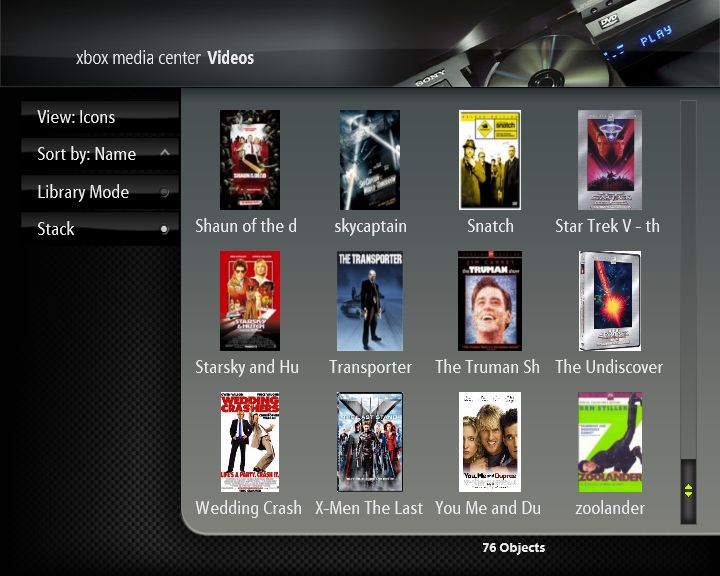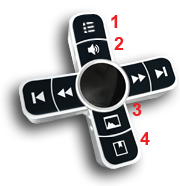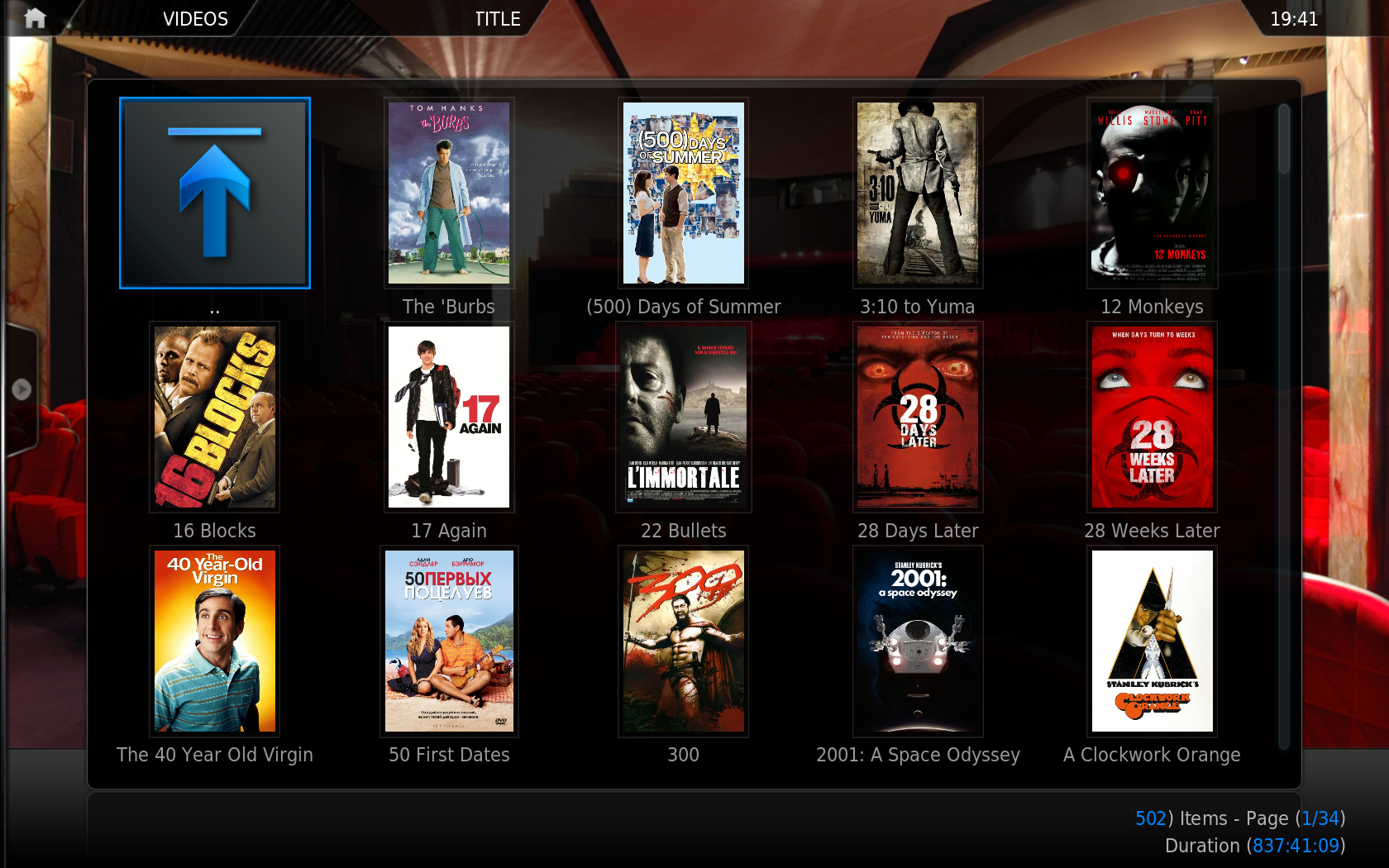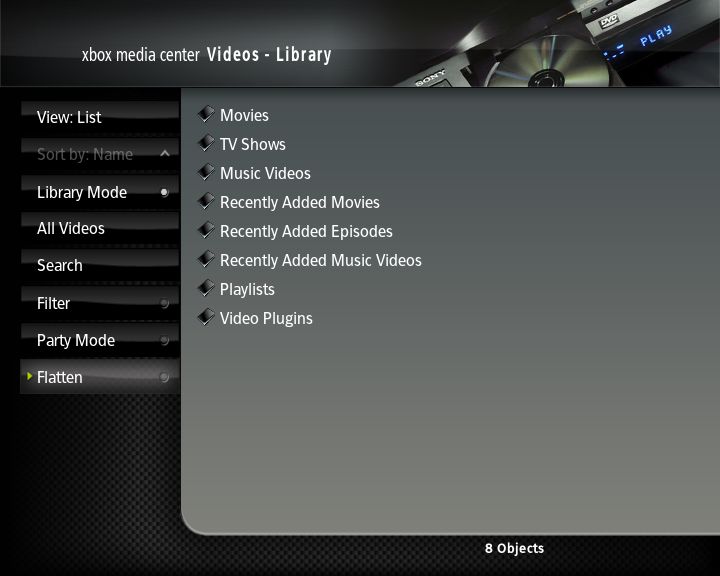Video playback
About My Videos
My Videos is the component of Xbox Media Center that handles videos. To access My Videos, select it from the Home screen. Some of the key features of My Videos are:
|
Using My Videos
You will find the interface of My Videos as easy to operate as the rest of Xbox Media Center.
Here you can see the default keymapping for:
OSD (On Screen Display)
|
The majority of the video functions can be controlled through the OSD (On Screen Display)
1. Now Playing - Selecting this opens the "Now Playing" playlist (where you can save and manage playlists) |
Video Sources & Bookmarks
- See main article: Bookmarks
Bookmarks are an important aspect of My Videos. They allow you to easily access your videos from anywhere on your Xbox or your Network.
XBMC gives you the ability to bookmark media that is:
- On your computer or a NAS (Network Attached Storage) device/system, which supports SMB sharing
- Stored directly on the hard drive of your Xbox
- On CDs/DVDs in the Xbox DVD drive
- Streamed from the Internet
For information on how to configure remote file shares, please click here
Listing Modes available in My Videos
Files ViewFiles View is the most basic way of browing your videos. In Files View, you browse through your bookmarks folder by folder, in the exact same way that they are stored. What you see in Files View is the same as you would see if you were to view the folders on your computer. |
|
Thumbnails
The same goes for playlists, and internet-stream files, example: Movies\path\videoplaylistname.pls Movies\path\videoplaylistname.tbn Movies\path\videostreamname.strm Movies\path\videostreamname.tbn If you store each of your movies in a separate subfolder to keep things organized, you can also make the movie folder have a custom thumbnail image. To do this you either need to save your .JPG/.PNG thumbnail as folder.jpg and place it in your movie folder, or you can save it as <foldername>.tbn and place it inside the same folder where your folder is located (XBMC first checks for <foldername>.tbn before checking for folder.jpg). Example: Movies\path\moviename\folder.jpg or Movies\path\foldername\ Movies\path\foldername.tbn Now your movie folder will have a lovely custom thumbnail image icon. SubtitlesXBMC supports both stand-alone subtitle files, as well as some subtitles that are embedded into the video-file (as is the case when watching DVD-Video movies). Embedded VobSub subtitles, also known as DirectVobSub, inside AVI, OGM, MKV, or MP4 are however not supported yet. XBMC supports SRT, SUB, TXT, SMI, SSA, AQT, JSS, MPL and VobSub subtitle formats. To use stand-alone subtitle files with video files, put them in the same folder as the video file or alternatively go to the Subtitles Settings and set a Custom Subtitle Directory. You can also choose to manually browse for the subtitle file. You can configure the way that they are displayed though the Subtitles Settings, and you can adjust where they are displayed onscreen through the Video Calibration Screen. The subtitle and video files must have the same name, for example: Video File: The Matrix.avi Subtitle: The Matrix.srt By default subtitles are turned on except when playing a DVD-Video movie. They can be turned ON\OFF manually from the OSD (On Screen Display). Note! External stand-alone subtitle files are not yet supported for DVD-Video movies. It is also possible to use flipped (bi-directional) subtitles. This means that the subtitles will be displayed from right to left instead of left to right. To enable this Enable Flipping Bi-Direction Strings in Subtitles Settings. This option is used for subtitles in Semic languages (Arabic, Hebrew, Farsi..., etc.). XBMC also supports (compressed) VobSub subtitles. Please note that the subtitles inside the RAR archive still need to have the same name as the video file. Video File: The Matrix.avi Subtitle: The Matrix.idx (this is the VobSub index-file which should be keept outside the rar-archive) Subtitle: The Matrix.rar (containing the VobSub-file The Matrix.sub that has been compressed with RAR) If you want XBMC to automatically turn on packed subtitles, you have to turn on the Search for Subtitles in RARs option in Subtitles Settings. Using Multi Language SubtitlesXBMC supports the use of more than one external subtitle. This of course is most useful when you have more than one subtitle file, (eg. for more than language). To use this functionality you need to rename the video file and subtitle files as follows: Video File: The Matrix.avi Subtitle 1: The Matrix.English.srt Subtitle 2: The Matrix.French.srt Subtitle 3: The Matrix.German.srt The dot after the filename but before the extension specifies the language (you can use anything here, mix numbers and and letters or just use one or the other).
You can even mix subtitle format, XBMC currently supports MicroDVD, srt, smi, vplayer, rt, ssa, aqt, sub, jss, mpl and VobSub (idx + sub) subtitle formats. eg: Video File: Movie Name (2006).avi Subtitle 1: Movie Name (2006).Chinese.idx Subtitle 1: Movie Name (2006).Chinese.sub Subtitle 2: Movie Name (2006).Japanese.idx Subtitle 2: Movie Name (2006).Japanese.sub Subtitle 3: Movie Name (2006).English.srt Subtitle 4: Movie Name (2006).French.smi Subtitle 5: Movie Name (2006).German.ssa
Adjusting Subtitles PositionThe position of the subtitles can be adjusted vertically (but not horizontally) in the Video Calibration screen, you can also configure the way that they are displayed though the Subtitles Settings.
Changing Subtitles during PlaybackThe subtitles can be changed or turned On and Off via the OSD (On Screen Display) while watching a movie. |



